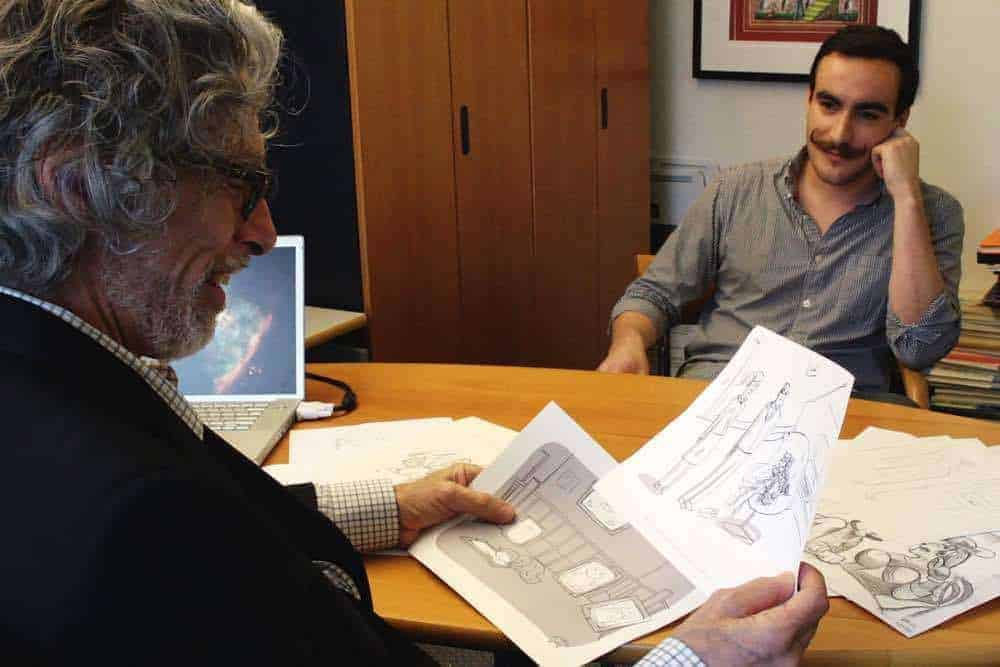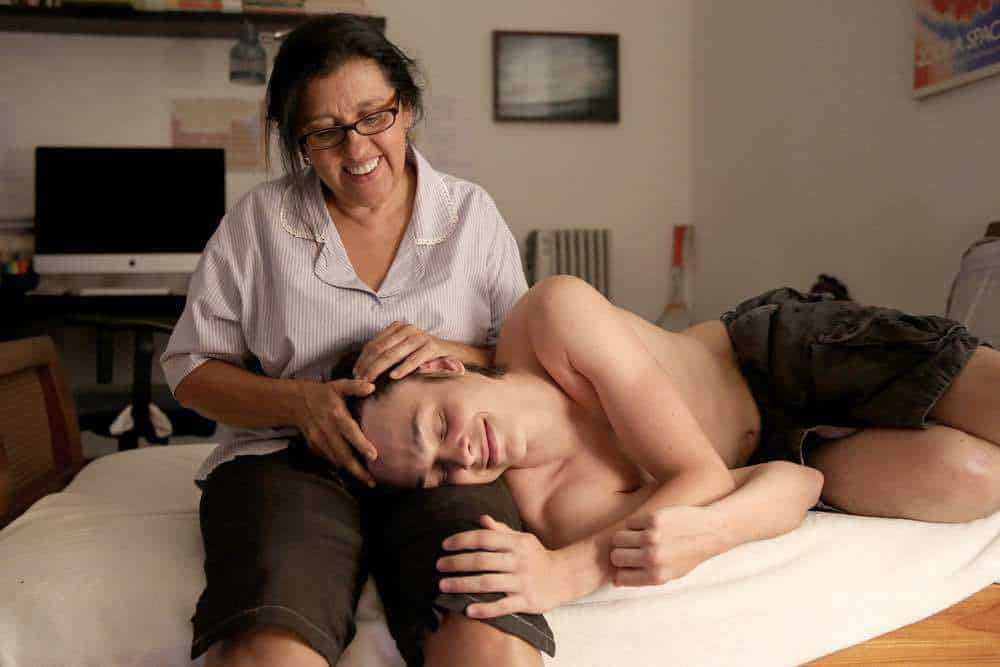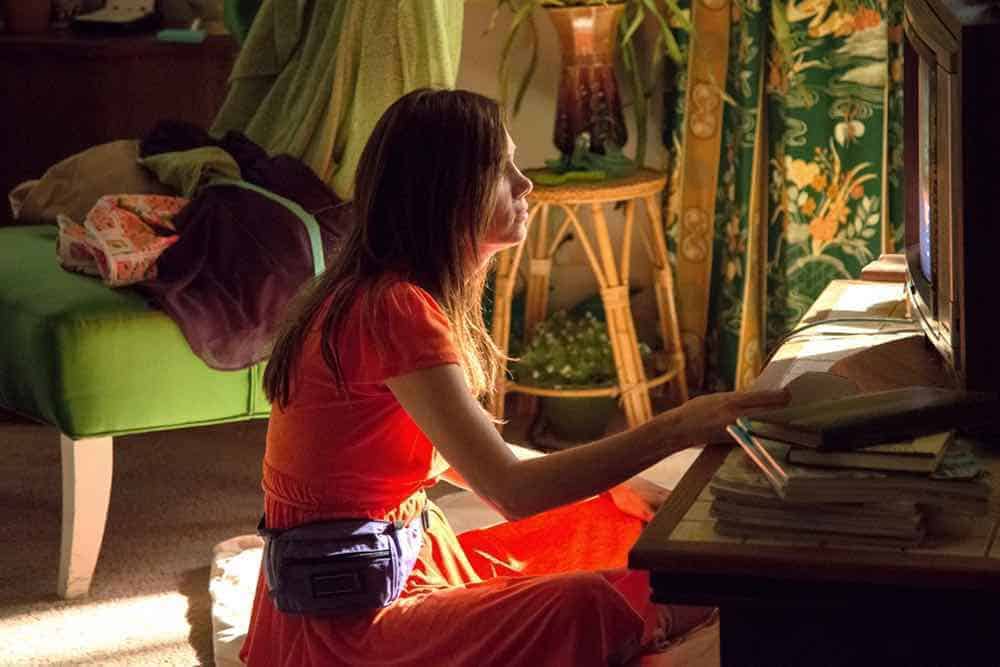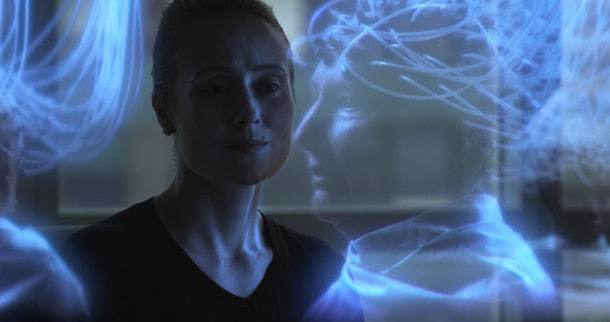This weekend, SFIFF showcased a variety of good films by female directors from around the world, tackling stories as diverse as the inner-workings of The New Yorker cartoon department (Very Semi-Serious), fidelity in romantic relationships (Fidelio: Alice’s Odyssey), and the sometimes fraught relationship between mothers and their children (Goodnight Mommy and The Second Mother).
Fidelio: Alice’s Odyssey (Dir. Lucie Borleteau, France)

Co-writer-director Lucie Borleteau explores sex, sexism, gender roles, and fidelity in this gorgeously shot story of the only woman, Alice (Ariane Labed), a ship engineer, aboard the merchant marine vessel Fidelio. Casual sexism is a day-to-day reality for Alice, and she’s found a subtle way to mostly fit in and to shut down any harassment. Although she’s in a committed relationship with her Norwegian boyfriend (Anders Danielson Lie, playing a weirdly normal guy), her ship captain is an old lover and desire takes over. The sex scenes, with each lover, are tender and intimate, but Borleteau is so focussed on showing a Strong Female Character and her sexual freedom that she forgets to give the characters personalities, making it difficult to root for — or assess — either potential mate. Their connections seem superficial. Now available to watch in the SFFS online screening room for members.
Very Semi-Serious (Dir. Leah Wolchok, USA)

When staring puzzled or glancing with moderate amusement at the New Yorker cartoons, it’s easy to overlook the fact that creating and curating them is itself an art. By giving us an inside look at the Cartoon Editor, Bob Mankoff, as well as some of the magazine’s long-standing star cartooonists and newer contributors, Leah Wolchok’s documentary “Very Semi-Serious” gives an inside look at the process. The care that goes into selecting cartoons and mentoring the cartoonists is deep and fascinating, as is the attention to each cartoonist’s unique perspective. But it goes almost uncommented on in the film that this is a very white, male group, with the magazine making little effort to diversity, which begs the unasked question, is the art form still relevant in the 21st century? Screens May 3 at 4:15 p.m. (Berkeley PFA) and May 5 at 6:30 p.m. (Clay Theatre). Purchase tickets here.
Goodnight Mommy (dir. Severin Fiala and Veronika Franz, Austria)

It’s summer time, and ten-year-old twins Lukas (Lukas Schwarz) and Elias (Elias Schwarz) are inseparable, playing outdoors together, staying up late to chat under the covers, or even having burping contests. Ever since her facial surgery — she wears a mask of bandages — their mother (Susanne Wuest) has been acting out of character: barking commands, refusing to speak to or feed Lukas, and doing everything she can to separate the two brothers. Convinced she’s not their mother, they becoming increasingly malicious, slowly escalating to terrifying heights. Co-directors Severin Fiala and Veronika Franz keep this world off-balance from the start: shooting the boys at play from a distance, heightening every creak and sound in the house to deafening levels, and keeping their house masked in darkness in the day, with all the blinds closed. Eerie and creepy, there’s a deeper psychological drama here that’s a slow burn to figure out, but never quite packs the emotional punch of Jennifer Kent’s similarly driven “The Babadook.”
The Second Mother (dir. Anna Muylaert, Brazil)

Touching on similar class issues as Sebastian Silva’s excellent film The Maid” — the tensions that arise when a rich family employs a live-in maid who effectively raises their kids — Anna Muylaert’s equally great The Second Mother has a warmer touch, a broader scope, and a real sense of humour. Val (Regina Casé) has been working for the same Sao Paolo family for a decade, effectively raising her bosses’ son Fabinho, collecting wages to support her own daughter, Jessica, who lives far away. When Jessica calls Val for the first time in 10 years, looking for a place to stay in the city while she writes her university entrance exams, it’s an opportunity to reconnect. But nothing is simple. Jessica can’t understand Val’s extreme consciousness of the class divide between her and her employers; meanwhile the family treats Jessica as an equal while belittling her mother (as Don Draper would say, “That’s what the money is for!”). Both families cross boundaries and have difficulty navigating their relationships. Casé is terrific as a world-wearied woman still full of life, fiercely proud of her daughter, and unsure how to deal with all the upheaval. Val handles everything with a bright sense of humour, preventing the film from teetering over the edge into melodrama.
Welcome to Me (dir. Shira Piven, USA)

When Alice Klieg (Kristin Wiig) wins an 86 million dollars lottery, she uses her winnings to create her own talk show, all about her, in Shira Piven’s charming new comedy. The money convinces Alice she can have a totally new life, thinking it can magically cure her borderline personality disorder, even deciding to go off her meds. The only network crazy enough to accommodate her Oprah-inspired vanity project full of bad advice and re-enactments of her past is a fledgling infomercial channel desperate for the money, run by two brothers (James Marsden and Wes Bentley) and their head-shaking producer (Joan Cusack). The show is an embarrassing disaster, a surprising success with viewers, and a great source of humour. But the film downplays the seriousness of Alice’s condition, often straining believability, especially considering how self-absorbed she appears to be while still able to maintain a circle of friends.

